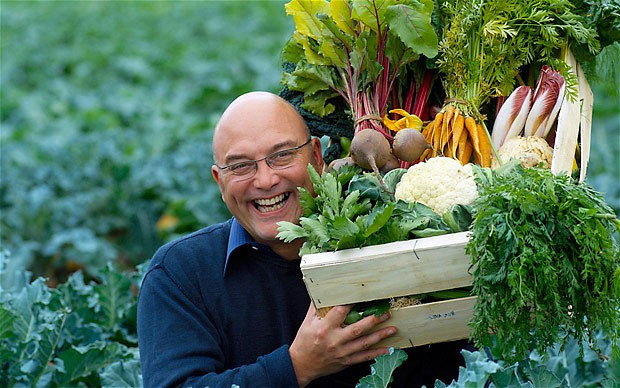How does diet affect vision?
Although no studies have concluded that without eating carrots, our eyesight will decrease, but scientists claim that vitamins and minerals play a very important role in preventing eye diseases. and help improve vision.
>>>Electrolytic glasses treat dry eyes
The link between nutrition and vision has long been known. In particular, dry eye - a common cause of blindness in developing countries - is the result of a deficiency of vitamin A, a vitamin found abundant in fresh meat and vegetables. In fact, vitamins and minerals play a decisive role in our 'window of soul' , helping it to cope with harmful ultraviolet rays.
Optical professor Ian Grierson at the University of Liverpool (UK) - one of the pioneers studying the relationship between nutrition and eyesight - says it's hard to show everyone the benefits. of nutrition. However, a healthy diet will certainly have many benefits for our eyes. He takes the example of age-related macular degeneration (AMD) - a disease that affects 30 million older people around the world. According to Professor Grierson, AMD disease occurs when the macula is located in the center of the retina working excessively, producing free radicals that damage eye cells. However, the professor said that antioxidants from food can protect cells by eliminating free radicals.

Professor Ian Grierson advises people to choose vegetables as fresh as possible
So, what priority should we prioritize in our menu to prevent retinal degeneration? Professor Grierson said that first of all vitamins A, C, E and zinc. In addition, carotenoids - organic pigments in plants and algae - also contribute to preventing damage that may lead to blindness. In fact, carotenoids like lutein and zeaxanthin help absorb harmful ultraviolet rays to protect the macula, just like a sunglasses. Professor Grierson said any yellow or orange vegetables and fruits contain these substances. They are also found in kale and spinach. Every day, we need to tolerate about 6mg of lutein. However, to absorb this substance well, you must eat with a little fat.
In addition, we should also focus on Omega 3 and Omega 6 fatty acids because they help preserve healthy eyes , according to Dr David Allamby in London. He said our eyes always have an oil layer to help keep the water on the eyes. If you have Omega 3 deficiency, your eyes will become dry and uncomfortable. These acids can be found abundantly in oily fish (such as salmon, mackerel, scad .), peas and dried fruits and nuts. At the same time, to strengthen vitamin A for the eyes, dietitian Ian Marber advises us to increase the consumption of vegetables, instead of taking vitamin A supplements, because sometimes, taking this vitamin overdose can also increases the risk of cancer.
Professor Grieson concluded that in order to have bright and healthy eyes, we should pay attention to creating a 'color like a traffic light' meal, that is, to ensure 3 colors of blue, yellow and red. . To absorb the most nutrients, we must remember not to cook food that is too ripe and do not peel too deep because the nutrients are usually just below the crust. Of course, the effect from a well-nourished menu is not the same for everyone but a varied diet can enhance the health of the 'window of soul'.
- Eating lots of fruits helps prevent vision loss
- 7 things that are harmful to the eyes
- There has been a way to help people with brain injury regain their eyesight
- Anti-blindness by telescope
- Eating lots of fat is considered to reduce sperm quality
- Diet to prevent Alzheimer's
- American developed contact lenses that are capable of night vision
- Side effects of low-starch diets
- Technology to support vision
- Early detection of age-related vision impairment
- Discover special glasses that help American soldiers see through the night
- Night vision: Second eyes
 Green tea cleans teeth better than mouthwash?
Green tea cleans teeth better than mouthwash? Death kiss: This is why you should not let anyone kiss your baby's lips
Death kiss: This is why you should not let anyone kiss your baby's lips What is salmonellosis?
What is salmonellosis? Caution should be exercised when using aloe vera through eating and drinking
Caution should be exercised when using aloe vera through eating and drinking